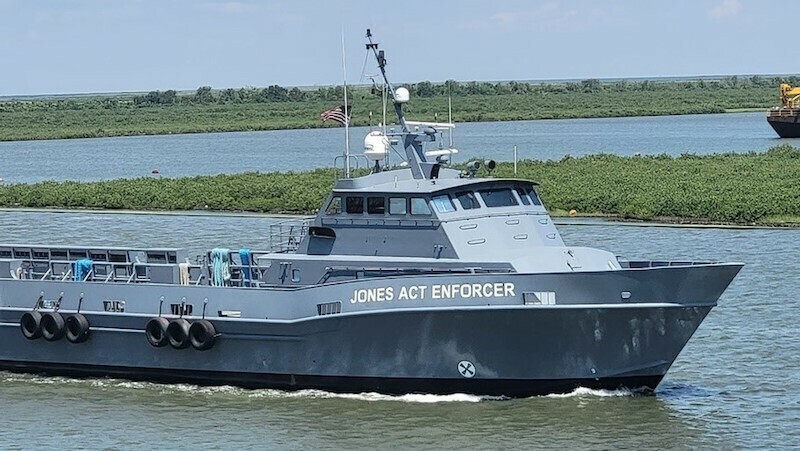The Offshore Marine Service Association (OMSA) publicly released the first allegation under its Jones Act Enforcer program. The report details a Chinese-built, Vanuatu-flagged vessel called the Epic Hedron transporting merchandise between points off the coast of Louisiana in violation of the Jones Act. OMSA generated the report after it received a tip from an industry stakeholder regarding the company’s social media accounts. Upon review, those accounts detailed Chinese-built Epic Hedron carrying cargo.
“As I’ve said before, the Jones Act is a simple law,” said OMSA President Aaron Smith. “Vessels transporting cargo between U.S. points must be built in the U.S. It is also an important law because it protects U.S. workers from unfair competition from foreign workers willing to accept wages far below what any U.S. citizen could or should accept. In this report, we’ve detailed how a company — by their own admission — used a Chinese-built vessel to transport cargo. That's illegal. Not to mention the vessel they are using has a record of failing Coast Guard inspections.”
The Epic Hedron is a derrick barge with a heavy-lift crane capable of lifting large pieces of equipment. In the allegation, OMSA details how the vessel used its crane to pick up pieces of oil platform (called jackets) weighing thousands of tons and while the jackets were suspended in the air, carried this cargo for miles across the Gulf of Mexico. This type of transportation is known to have higher safety risks than if the pieces of the platform had been placed on a U.S.-flagged barge for transport.
The report also details the vessel’s history through multiple owners of safety and pollution prevention infractions and how, based upon official U.S. Coast Guard reports, the authorities seemed to let these violations go unpunished, provided the vessel operator agreed to fix the problem. Specifically, the report notes official write ups for:
- Illegal modifications to equipment on the vessel which could allow the pumping of oily water into the ocean, known in the industry as a “magic pipe.”
- Failure to record the levels of fuel, oils, or other similar substances as required by regulations. This failure could be used to hide other violations.
- The dumping of garbage, specifically food wastes, into the ocean untreated. An act which can contaminate waters and is a violation of international regulations.
- Failure to report discharges of ballast water as required by law. Such discharges need to be monitored closely because they can introduce invasive species to waterbodies.
“The Epic Hedron has racked up a shocking number of violations, and in each case, it seems they were told ‘just don’t do it again,’” said Smith. “If that were a U.S.-flagged vessel, the U.S. Coast Guard would have prevented it from leaving the dock and the crew might even face criminal penalties. Foreign-flagged vessels should play be the same rules.”
OMSA’s report also detailed how the Epic Hedron has continuously failed to utilize its Automatic Identification System (AIS) in violation of international safety regulations. This system provides real time and historical tracking about the vessel’s activities. Despite the international requirement for utilizing this equipment, the USCG has regulations allowing vessels like the Epic Hedron to turn this system off. The report requests the USCG to change this regulation.
"I think more people, not less, need to know what the Epic Hedron is up to,” said Smith. “It, and all other Chinese-built vessels, should be publicly broadcasting their activities. The question is why aren't they?”




